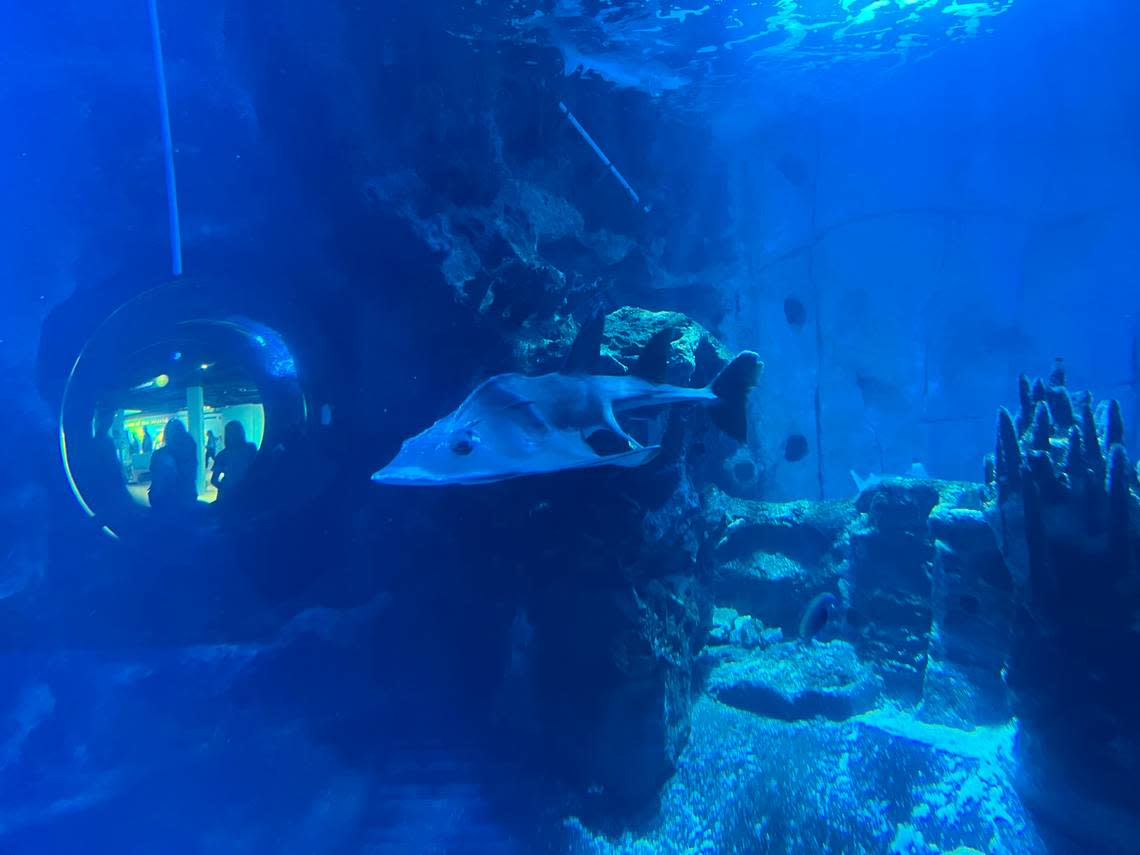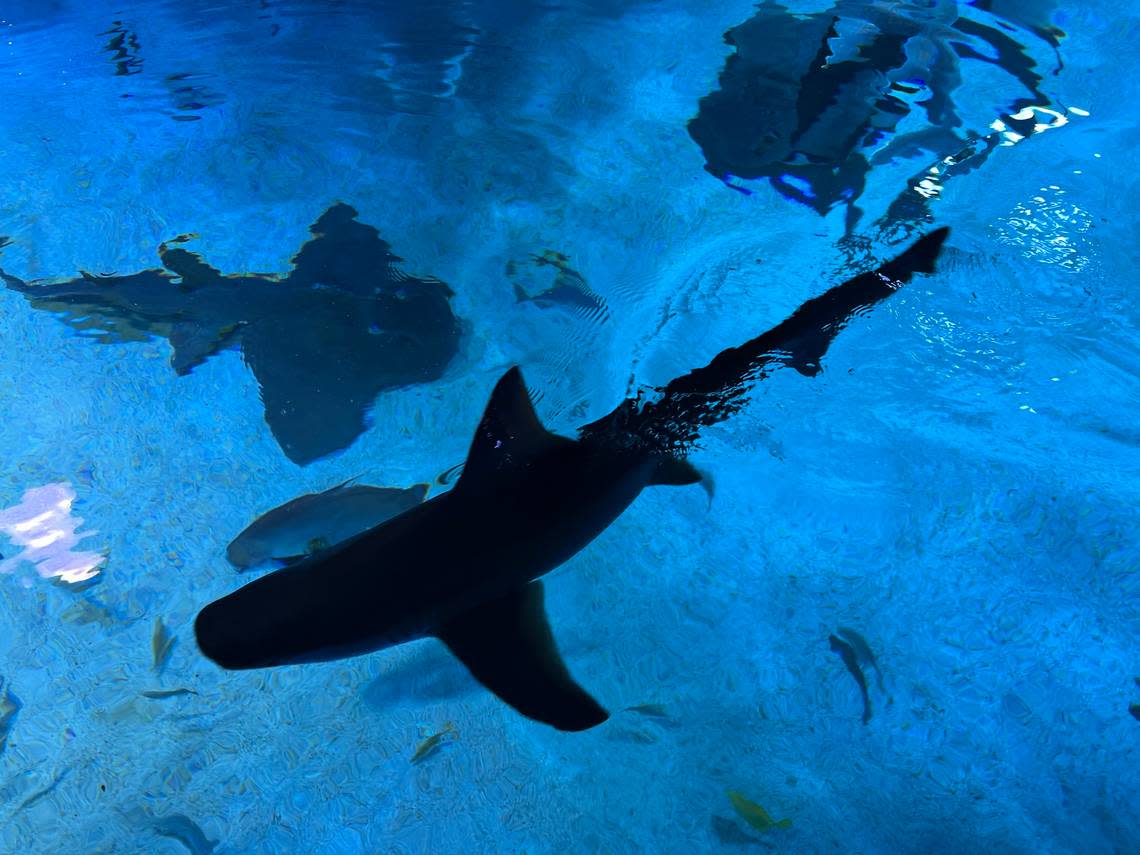For Shark Week, Kentucky aquarium tests your knowledge of the underwater predators
Kentucky may be far from the ocean, but Shark Week is here, and to celebrate the Newport Aquarium is myth busting some common misconceptions about the ocean-dwelling creatures.
Shark Week — the week-long block of programming devoted to sharks and airing on the Discovery Channel — originally premiered July 17, 1988. This year, it started July 24, and a viewing schedule is available online.
The Newport Aquarium’s outreach about these animals extends throughout the summer with the return of a popular exhibit that features a shark nursery and the world’s first shark bridge.
Beyond its Shark Summer exhibit, the aquarium is educating the public about the important role these predators play in keeping the ecosystems they inhabit healthy.
Scientists often call varieties of sharks “keystone species” because of the cascading harms that are unleashed once they disappear from an ecosystem.
You can test your knowledge of the creatures with the true and false statements below, courtesy of the Newport Aquarium.
Claim: Sharks can smell one drop of blood from a mile away.
While it is true that sharks have a keen sense of smell, detecting one drop of blood from that far away is an exaggeration.
Sharks can pick up on signals humans cannot, however. That includes perceiving the tiniest modulations in electrical currents, which they use to detect their prey. The claim is false.
Claim: Sharks can’t stop swimming or they die.
It is correct that some sharks must swim in order to breathe, but not all.
According to the aquarium, those that must just keep swimming are deemed “obligate swimmers.” They must keep water moving over their gills in order to aspirate.
Others are capable of “buccal pumping,” enabling them to pull water into their mouth and pass it over their gills while resting. The claim is not entirely true.

Claim: Sharks feed ravenously and eat more than any other animal in the aquarium.
It turns out the Newport Aquarium’s penguins eat more than most of the sharks.
Sharks have a much slower metabolism and can even go up to six weeks between meals. Meanwhile, the penguins dine on herring at least twice a day. The claim is false.
Claim: All sharks are apex predators with no natural predators that hunt them.
In 2021, for example, there were only nine fatal shark attacks reported around the world.
Compare that to the more than 100 million sharks humans kill every year, and nearly three quarters are killed only for their fins. Humans are much more deadly to sharks than the other way around. The claim is false.

Claim: All sharks are man-eaters.
Most shark attacks on humans come down to a case of mistaken identity, scientists believe. Sharks just don’t see humans as prey, though a paddler on a surfboard or boogie board can look like a sea lion or sea turtle from below.
There are more than 400 known species of sharks, and an estimated 80% are less than 4 feet long.
As much as a third of shark species are near threatened or critically endangered, and humans are mainly to blame. The claim is false.
Do you have a question about wildlife for our Kentucky service journalism team? We’d like to hear from you. Fill out our Know Your Kentucky form or email ask@herald-leader.com.
